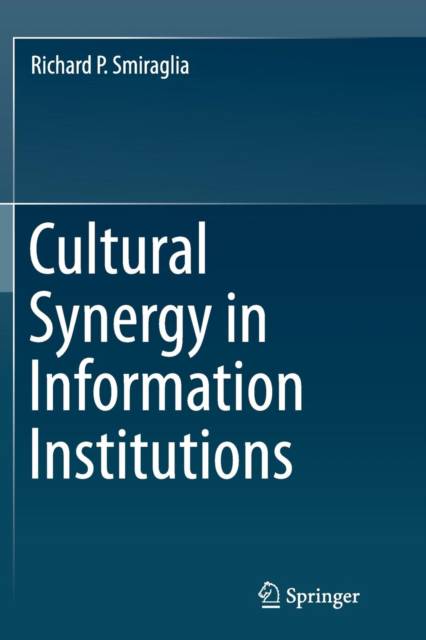
- Retrait gratuit dans votre magasin Club
- 7.000.000 titres dans notre catalogue
- Payer en toute sécurité
- Toujours un magasin près de chez vous
- Retrait gratuit dans votre magasin Club
- 7.000.0000 titres dans notre catalogue
- Payer en toute sécurité
- Toujours un magasin près de chez vous
106,95 €
+ 213 points
Format
Description
Cultural forces govern a synergistic relationship among information institutions that shapes their roles collectively and individually. Cultural synergy is the combination of perception- and behavior-shaping knowledge within, between, and among groups. Our hyperlinked era makes information-sharing among institutions critically important for scholarship as well as for the advancement of humankind. Information institutions are those that have, or share in, the mission to preserve, conserve, and disseminate information objects and their informative content. A central idea is the notion of social epistemology that information institutions arise culturally from social forces of the cultures they inhabit, and that their purpose is to disseminate that culture. All information institutions are alike in critical ways. Intersecting lines of cultural mission are trajectories for synergy for allowing us to perceive the universe of information institutions as interconnected and evolving and moving forward in distinct ways for the improvement of the condition of humankind through the building up of its knowledge base and of its information-sharing processes. This book is an exploration of the cultural synergy that can be realized by seeing commonalities among information institutions (sometimes also called cultural heritage institutions): museums, libraries, and archives. The hyperlinked era of the Semantic Web makes information sharing among institutions critically important for scholarship as well as the advancement of mankind. The book addresses the origins of cultural information institutions, the history of the professions that run them, and the social imperative of information organization as a catalyst for semantic synergy.
Spécifications
Parties prenantes
- Auteur(s) :
- Editeur:
Contenu
- Nombre de pages :
- 82
- Langue:
- Anglais
Caractéristiques
- EAN:
- 9781493954681
- Date de parution :
- 03-09-16
- Format:
- Livre broché
- Format numérique:
- Trade paperback (VS)
- Dimensions :
- 156 mm x 234 mm
- Poids :
- 136 g

Les avis
Nous publions uniquement les avis qui respectent les conditions requises. Consultez nos conditions pour les avis.






